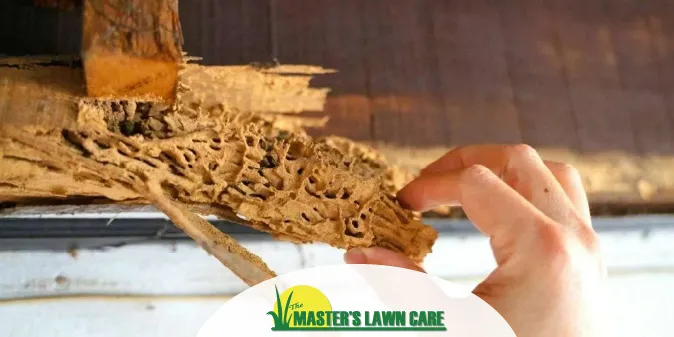As winter kicks in, many homeowners think termites take a break, but not in Florida! Our warmer climate keeps those critters active year-round, especially the sneaky subterranean types you find around here.
Yep, even in December, they're up to something.
A few actors that keep termites active in winter:
Mild Climate:
While December brings cooler temperatures, the subtropical climate of North Florida allows for milder daytime weather, creating an environment conducive to termite activity.
And even if it does get chilly, the controlled environment inside a heated home is more appealing and can provide warmth, allowing them to remain active.
Moisture:
Termites are attracted to moisture, and indoor spaces often maintain a consistent humidity level, providing an environment conducive to their activity.The occasional rainfall or humidity in December provides the necessary conditions for these pests to thrive.
The Subterranean Influence:
Subterranean termites, which are common in Florida, have cool adaptations that let them handle colder temperatures. Their homes, or colonies, go deep underground, kind of like having a built-in winter coat.
This helps them stay active all year round, even when the surface temperatures vary. So, while other bugs might take a break in winter, these termites keep on doing their thing, munching away.
Tips to stay proactive against termites in December:
Regular Inspections:
Schedule an annual professional termite inspection of your property, focusing on areas prone to termite activity, such as the foundation, crawl spaces, and wooden structures to detect signs of infestation or vulnerabilities early on.
Address Moisture Issues:
Termites thrive in moist environmenst. Ensure proper drainage around your home and address water leaks and moisture issues, as termites are attracted to damp environments.
This includes moisture in wood such as wood rot, under sinks, and around windows.
Wood Inspection:
Regularly inspect wooden structures for signs of damage, as termites feed on cellulose found in wood. This includes stacks of logs for your fireplace, lumber, and any sheds around your home.
These become attractants for termites and draw colonies closer to your home.
Mulch Management:
Periodically inspect mulch beds for signs of termite activity, if you use solid wood mulch. We typically use Pine Bark or Cypress Hardwood, which is termite resistant.
Ensure your mulch is not in direct contact with the wood siding of your home, as it can trap moisture and attract termites.
Termite Prevention Treatment:
Consider preventive measures like soil treatments of Termidor to fortify your property against termite threats. It's crucial to have a professional termite inspection before treating to ensure there is no active infestation.
Our pest professionals can identify the type of termites present, assess the extent of the infestation, and recommend suitable treatment options.
If you have a company that does not annually inspect your home for termite activity, change your pest control provider today. That is a risk you do not want to take on.
Despite the potential for termite activity in December, the risk may be lower compared to warmer months. However, it's important to remain vigilant and take preventive measures to minimize the risk of termite infestation.
If you have concerns, consulting with one of our pest control professional is advisable for tailored advice based on your specific situation.


